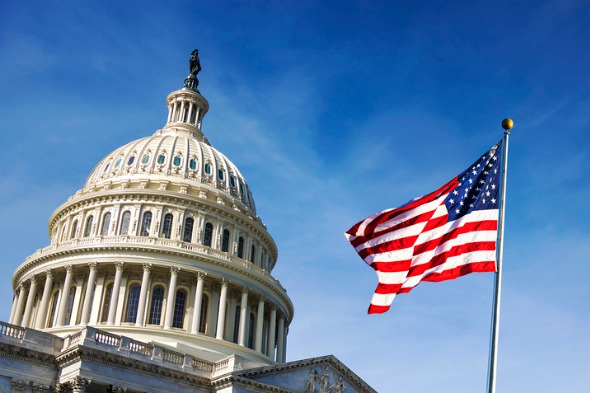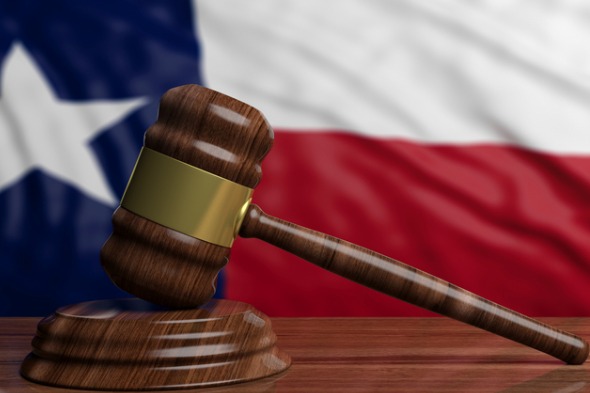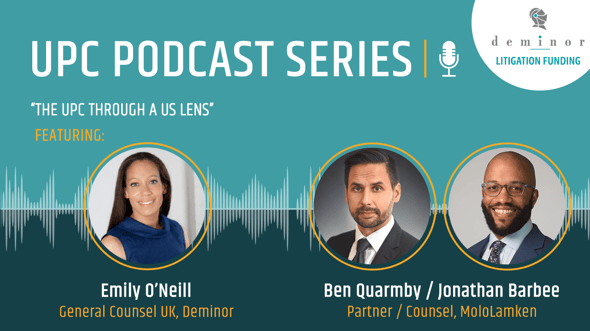In this podcast series, Emily O'Neill General Counsel UK and Global Intellectual Property lead for Deminor Litigation Funding, undertakes interviews with global professionals to understand the implications of the new Unified Patent Court (UPC).
Deminor welcomes you to join this conversation as we summarise the key elements of the conversations between Emily O'Neill and these experts, as captured in the podcast transcripts below.
What is the UPC?
The Unified Patent Court (UPC) is a new European court system designed to harmonise and simplify the patent dispute landscape in Europe.
The UPC was established in order to provide a unified patent enforcement system with jurisdiction over ratifying EU member states. Countries that are Member States of the European Patent Convention (EPC) but are not EU member states cannot join the Unitary Patent or Unified Patent Court. As a unified court with a multi-state jurisdiction, the UPC hopes to be faster, more efficient and more cost-effective in resolving patent disputes.
The UPC's structure is made up of a Court of First Instance that is divided into central, local and regional divisions. Its central divisions are located in Paris and Munich. The third seat of the central division was originally assigned to London. The Italian Foreign Office published a press release that an agreement has been reached with France and Germany to set up a branch of the Central Division in Milan. This agreement now needs to be approved by the other UPC contracting states during the next meeting of the Administrative Committee in June 2023. The press release states that the Milan court is in the process of being set up and will be operational within the next year. In the interim, the Presidium of the UPC decided, that initially, the Paris and Munich central division seats will share this caseload. Cases concerning human necessities are assigned to Paris and those involving chemistry and metallurgy to Munich for now.
The UPC’s Sunrise period launched on March 1st and allowed patentees to opt out of the exclusive jurisdiction of the new system to take effect from the court coming online on 1 June. Approximately 460,000 European patents and patent applications have been opted-out during Sunrise. Opt-outs are still possible now and at least during the 7-year transition period, unless proceedings are pending in the UPC, and will take effect once filed.
However, this is a new and untested forum, located in civil law jurisdictions but with elements of common law such as disclosure, cross-examination and adverse party costs. Notable jurisdictions such as the UK and Spain are not within the UPC - How will companies mitigate their commercial litigation risks in this environment?
Podcast Preface:
Deminor General Counsel UK, Emily O'Neill (EON), speaks with Partner, Ben Quarmby (BQ) and Counsel Jonathan Barbee (JB) from MoloLamken, a US law firm focused exclusively on representing clients in complex disputes and investigations with offices in New York, Washington DC and Chicago.
In this interview with Emily Jonathan and Ben discuss the UPC from a US perspective.
Podcast Transcript:
EON – From a US perspective, how do firms and clients view the UPC?
BQ - From clients, we hear interest, we see folks who want to learn more about what it means going forward. We don't see necessarily excitement yet with purely domestic clients, but there's a lot of questions. Some of which are being answered at the moment by EU firms doing some roadshows in the US to educate the client base here and bring them up to speed as to what this could potentially be in the years to come.
What we do see, however, is enormous interest from litigation funders, who see this as a brand new set of opportunities if indeed the UPC turns out to live up to its potential. So, a lot of appetite there as to what it means, how it's going to change the litigation funding world, how it's going to open essentially a new sandbox to play for funders.
What we're hearing also from EU firms with whom we work a lot is question marks. They know what it says on paper, they know what the UPC is supposed to be, they know what they've been promised. They also know that they've been promised other things from the UPC, such as the launch date, that turned out to not be entirely accurate, so they are waiting to see how quick it's actually going to be. Whether there are going to be material differences in the jurisprudence emerging from each different center. How long is it going to take for the court to really run smoothly? Because we can imagine in the first six months, there are going to be some hiccups. How long it's going to take for, really, the court to hit its stride? And a lot of question marks as to who among their client base is going to be willing to dip their toe in first. Who will take the risk of going into an unknown jurisdiction, but also potentially taking advantage of the opportunity to shape the narrative that shaped the jurisprudence with a good test case, and lay the groundwork for some good jurisprudence down the line?
EON - I think from the litigation funding side, the market will be broader as claims which were not economically viable in a single national case may become viable for funding. But that's going to very much depend on how widely firms, or companies, have validated their patents now under the EP system. Until the unitary patent becomes a reality, it may be a case-by-case basis as to whether there is a real difference in size of damage award in comparison with going after an individual action in one jurisdiction.
EON - Do different industries have different views on the UPC? Are they willing to engage with the market right away or is the trend to wait and see?
JB - It seems like the main divide will be between the high-tech industries and the pharma industry, and I think one thing that those industries will have to consider is the layout of their portfolios. It seems that in the pharma industry, you may have a smaller set of patents, or maybe one patent that really controls the market, and really is the leader for a product. And so, it may be riskier to try to put that patent through the UPC. Whereas I think with a lot of the tech industry and a lot of those patents, you see much broader portfolios, and so maybe you can take some more risk there.
I think there’s also going to be a consideration with the value of the injunctive relief that you can get from the UPC as well. It seems that in the pharma market, that actually may be a lot more valuable since every day matters when a new product is about to hit the market.
I think that, in the tech industry, injunctions are also valued, but there is probably also more premium on damages as well. That's one thing that we in the US are really interested in and seeing as well, which is how the availability of injunctive relief will be different at the UPC. We expect that it'll still be easier to achieve injunctive relief in the UPC than it is in the US.
As you know, Emily, it's very difficult to get injunctions in the US due to the eBay decision. A lot of parties are turning to the International Trade Commission (“ITC”) to get what is basically the equivalent of injunctive relief and exclusion. That’s a very costly and also a very difficult type of proceeding. So it’ll be interesting to see how injunctions play out at the UPC, and then I think that’ll also spur different industries to move into the UPC based on how that goes.
BQ - I think that’s exactly right. I would add also, I wonder whether you’re going to see even within some industries, say the farming industry, or within the biotech industry generally, a greater awareness of how you could potentially use the UPC to fashion jurisprudence in a way that is more beneficial to your industry, or your area of work than maybe some of the national jurisprudence might be. For example, Google, for most of its activities, and for most of its patents, may not see a huge benefit in trying to mould the jurisprudence of the UPC. But a pharma company with a significant biotech or DNA editing division may see some benefit to laying the groundwork, or trying to reverse what it sees as a less than beneficial precedent in the national jurisdictions, trying to really reshape the narrative at the UPC level, in a way that's going to protect its industry in the long term.
EON - How much do you think judges will bring in their national flavor into the UPC? And will they be able to achieve harmonization across the different local and central divisions?
BQ - The answer to that question is going to be very jurisdiction specific because, depending on the country of origin of these jurists, they may or may not have prior specialization. Or even if they do have specialization, it may have been just a few years of specialization. Whereas in some jurisdictions some of these folks will have done 30 years of IP law, others will have just done a stint in an IP-focused chamber for three years simply because in that national system they tend to rotate through.
I think the propensity to bring in prior national practices into the UPC jurisprudence is probably going to hinge a lot on which of those buckets these jurists fall into.
JB - I agree with that. The other thing I'll add is that, as we like to say, “old habits die hard.” So if you've been practicing under one system, and you've been dealing with those nuances – when it comes to damages, injunctive relief, validity issues, infringement issues, whether you come from a jurisdiction that's more plaintiff friendly, or more defendant friendly or friendlier towards different industries – it's going to take some time to let go of that, especially with a new court, like the UPC.
I think what that could mean is that we start off in the UPC with quite a few slightly divergent views. It may take some time for the judges to coalesce around some common principles and understandings. And I suppose that's to be expected with any new court system. If you start out with a bunch of brand new judges, then you're starting from scratch, and they don't have the prior experience that they can leverage. If you do start with judges with previous experience, that's obviously very valuable and provides credibility to the new court. And I think that'll be an advantage here because it does seem that litigants will want to hit the ground running with the UPC and expect judges to really be experienced and know how to shepherd patent litigation through the court system.

EON - Do you think that the UPC could really compete with the US as the Court develops?
BQ - I'm not sure we see this necessarily as a competing venue. I think for much of our client base, it's just an extra front. And it is new opportunities and an extra lever on which to pull in litigation, both on the plaintiff side, but also on the defence side in some cases, or as an avenue for potential counterclaims.
I don't really see this necessarily as a replacement jurisdiction because I think it's a little bit apples and oranges. What makes the US system what it is is not necessarily specialized judges. Although in certain jurisdictions to have district court judges who have done hundreds of cases is beneficial. But I think what makes it special is the jury system and the damages numbers that could come out of that system. It remains to be seen whether the UPC can generate those kinds of numbers, even if it operates the way it potentially could. Even considering the number of jurisdictions and the size of the markets involved. It's not yet clear that you're going to get to see the same numbers as you see in the US. So, there's a lot of ways in which it's likely to be a very useful tool and a tool in which you're going to benefit greatly from having specialized judges. I'm not sure in terms of getting huge damages on the back end whether it's necessarily going to be a substitute jurisdiction.
JB - I totally agree that, at least right now, the UPC won't be an alternative or a substitute for the US court system, particularly for US-based companies. Part of that is just bias, and another part is that their largest markets are within the US. But I also think that the UPC will be seen more as a complement to the US court system, maybe in the same way that the International Trade Commission is seen as a complement to litigation in US district courts. And that means that it can still become a very, very powerful tool for patent holders, inventors, innovators, and plaintiffs to wield and can definitely become a more significant part of US-based companies’ litigation strategies than what we've seen so far.
In my experience, if you're working with a US-based client that's primarily focused on litigating in US courts, then you aren't really thinking about litigating in Europe, as, obviously, the litigation would be broken up in Europe. Then there are some logistical difficulties as far as finding the proper European counsel, having those relationships established, so on and so forth. And so the UPC will probably ease the way for US litigators to incorporate a European component into their litigation. And then as far as whether it'll make a difference that there are specialized judges who have worked on courts that focus on patent litigation, I think the perspective on that is a little bit mixed.
We have a split court system where we have some generalist judges doing patent cases. But then we have some specialist judges doing patent cases in the Federal Circuit, our court of appeals for patent litigation matters, at the International Trade Commission, and then also at the Patent Trial and Appeal Board (“PTAB”).
What's been interesting is seeing the Patent Trial and Appeal Board evolve over the last 10 years. And at first glance, you might say great, you have all these PTAB judges who were patent practitioners litigating some of the toughest patent cases across the country or across the globe. That's great – they may be more informed and better able to reach the right decisions than a generalist judge. But I think what we've seen over the last 10 years with the PTAB is that that's not always the case. And so I don't think that some US litigators, and some US litigants, put such a high premium on a judge having prior patent litigation experience. In some ways, I think for some litigants that can be a disadvantage because you may not want a judge that's too locked into some of the technical nuances of the case that might cause them to miss out on some of the larger bigger picture issues, especially when those issues apply to the amount of damages that you might be able to recover or whether you can get injunctive relief.
Ben and I are the type of patent litigators where we love to tell a good story. And a good story is, of course, attached to the technology, and other fine details. But it's also attached to something that sometimes generalist judges or a jury are better able to relate to. And so there is a bit of a risk with going into a more specialized court – that you lose out on some of that advantage that comes from telling the narrative.
That's super interesting. So the specialist, technical judges may miss out on the context of the invention to the general population? I hadn't really thought about that before; I think that's interesting. Just picking up on your PTAB point, do you think that inter partes review (“IPR”) at the PTAB with its short timescales and relatively low cost could be a sort of a threat to the nullity proceedings in the UPC? - EON

EON - Do you think that Inter Partes Review (“IPR”) at the PTAB with its short timescales and relatively low cost could be a threat to parties using nullity proceedings in the UPC as part of their multi-jurisdictional campaigns?
BQ - My impression talking to sister firms in France in particular and in the EU in general is that no, there is not. There is not the perception that the IPR system is going to hamstring the UPC in any way. The timelines that are under consideration seem similar enough that one will not necessarily be seen as eating the lunch of the other. But that's just very anecdotal. My impression is that there's no real fear on the part of the bar in the EU right now about that being about IPR being seen as a competing path.
JB - I haven't heard anything differently. I think, from the US perspective, if anything, the PTAB and IPRs may push some people to move into the UPC and try to use that as a better litigation forum, just because plaintiffs are so adverse to litigation in the PTAB and IPR.
BQ - I'm sorry if I'm taking this off on a tangent, but for me one of the interesting aspects is the speed of the UPC. Assuming it goes as promised, assuming it is fast as promised, it's not only interesting to see what it means for the clients, but what it means for the funders. It's also very interesting to see what it's going to mean for the patent bars in the various jurisdictions in which this is operating. Because there's, there's a very real possibility that you're going to see a fragmentation of the market between firms that are going to focus only on national proceedings and firms that are going to focus on the UPC.
In many of these jurisdictions, what has been the traditional IP boutiques may simply not have the headcount to handle, you know, two UPC matters at the same time, involving eight patents each for example. We’ve seen in the US that you need a certain size patent group to handle multiple ITC matters, given the speed at which they operate, and given how much work needs to be done in a compressed amount of time.
It's going to be interesting to see in, for example, France, but in other jurisdictions too, whether you see a shake-up in the legal market with some folks deciding they're going to commit to the UPC and sort of bolster their ranks to make sure they have enough line attorneys available to handle these big matters going forward at high speed. Alternatively, whether you see firms saying, ”You know, what, we're going to remain a five-person shop, we're going to focus on national level proceedings, we're going to focus on smaller and medium-sized enterprises that have less to gain from a UPC procedure, and that's going to be our market going forward.”
EON - That's a really interesting point. I think from a UK perspective, following Brexit, we'd have seen a number of UK firms who were UK-only opening European offices so that they can take part in the UPC and represent clients there.
I think it's also a question as to who is going to be representing the clients in the UPC. Traditionally there's a split between litigators who have litigated at the National Court level and patent attorneys who have litigated cases in oral proceedings at the European Patent Office and in some jurisdictions like Germany provide technical support in court litigation and run validity actions. Both sets of lawyers will have standing to represent clients in the UPC. I think it'll be interesting to see whether the patent attorney firms move that forward and, you know, are running litigation matters themselves which could mean more competition in the market more generally.
Whether the current setup will enable firms to service both jurisdictions, I think, would depend on how cases run in the nationality. It could already be that firms are set up for the bigger cases. From a UK perspective, I think the streamlining of the decision and the actual hearing means that actually supporting a case may be lighter in the UPC than in the UK courts, because disclosure is going to be more limited, witness statements are going to be more limited, it's going to have quite a continental feel in terms of short one day hearings, rather than days or weeks of hearings, and live cross-examination, as we're more used to in the UK and the US.

"You mentioned one group that's really interested in the UPC is funders. Obviously, we're watching with interest. From our side, I think it will depend on who's in, and how widely their patents are validated, how strong their patents are, are organizations putting in their strong patents. Or is this going to be a second-rate court with just the weaker patents being used as test cases? Also, how will the rules be applied? Given that the US funding industry is primarily US focused? How are they viewing whether to move into Europe and a court that has much more of a civil law flavour." - EON
EON – How will US funders react to using the UPC given it is European and has a greater a civil law approach?
BQ - My impression is that yes, of course, there's some question marks as to how it's going to operate and what kind of patents are going to be searched first. But mostly, there is a huge appetite because there are enormous amounts of money waiting to be deployed in the US. There is potentially more money than can be really effectively put to work in individual cases sometimes. So there's enormous pressure to find outlets for this money. And in the US there's plenty of cases, but there's also a lot of funders fighting over a limited number of universal cases.
This is a brave new world of new opportunity, not only for new cases, but it also offers new opportunities for acquisition portfolios. Suddenly, a lot of these companies or universities that had very heavy portfolios with a few other patents elsewhere, that were not that interesting to patent owners or funders or anything in between, are suddenly available, potentially still relatively cheap and ready to be exploited. And so suddenly it opens all these new doors for funders to use their money and to deploy their money in a productive manner. It's not only litigation, but also new assets becoming available for acquisition and having new potential value assigned to them.
JB - That's certainly a fair view. One thing I've noticed over the last few years is that it seems that there are quite a few US funders that have already integrated foreign jurisdictions into their strategies and their campaigns. And it seems that some individuals have actually been preferring some foreign jurisdictions over the US because, over the last few years, there's been a growing dissatisfaction with changes in US litigation, including with the PTAB and IPRs, with Section 101, and subject-matter eligibility issues. And so I think funders and plaintiffs and patent holders have been looking for jurisdictions outside of the US and looking for that complement, or that alternative, in some respects. I think there will continue to be growing interest.
I think one of the bigger challenges is figuring out how to coordinate whatever the UPC becomes with how the US court system is changing and what some of the current funding strategies are. For instance, will patent campaigns going forward pretty much look the same and just dabble a little bit in the UPC when it's helpful? Or will there be, actually, a paradigm shift in how patent campaigns are run, where maybe you have some campaigns that are largely focused on the UPC with a US component, or vice versa. So I think that's yet to be seen, and it will depend on all the variables and factors that we've been seeing so far.
EON - I guess it'll depend on a case-by-case basis, and on the facts and qualities of the case because if there's a possibility for willfulness and triple damages, that's something that's not available in the UPC.
EON – Will the UPC become a Western District of Texas-type jurisdiction that's favourable for NPEs?
BQ - I hesitate to give a clear-cut answer on this – it has every opportunity to be that or something like that. The pieces are in place, and if everything runs according to plan, it could be something like the Western District of Texas. Not exactly – obviously it's slightly different. It will have some advantages that W.D. Tex. does not have, and W.D. Tex. will have some advantages of its own, but it has the potential to be that.
What we are hearing from all our counterparts in EU firms is still a lot of uncertainty and folks being really reluctant to make any predictions as to how it's going to run. There are just a lot of question marks. We hear a lot of folks doing road shows and giving presentations about how it's supposed to run and what the rules say. As to how it's actually going to run, whether these timelines are likely, whether you're going to see too many heterogenous decisions or inconsistent opinions coming out of various centres, thus sort of jeopardizing the value of the system as a whole are questions that are still very much top of mind for our clients. We're super interested in it, but we just don't know that it will necessarily live up to its potential.
JB - I totally agree with that: We just don't know. I would say that we hope that it does live up to its potential. The promised speed of the UPC is one of its greatest attributes and I think that will make it attractive for some of the same reasons that the Western District of Texas is attractive, but it’s yet to be seen for sure.
EON – I think that’s right. It is uncertain. We don’t know how the judges are going to decide or apply the rules and it’s going to be a range of different judges. Unlike, more recently, in the Western District of Texas where there has been that consistency with Judge Albright.
I think from the litigation funding side, it's also difficult when you're trying to risk assess a case. In the US, there's lots of data around the judges, the jurisdiction, how cases are decided, how cases are approached and what the real timescales are which we don’t yet know for the UPC. There are also procedural uncertainties with the UPC such as whether there could be bifurcation. If the German judges want to follow their national roots, they may well bifurcate the nullity from the infringement case, and then it's not going to be a one-year process. So, I think there is that level of uncertainty for sure.

EON – Do you think that uncertainty together with adverse party cost risk is going to put claimants off from litigating in the UPC?
BQ - I wonder whether plaintiffs will be aware of the risk of cost shifting. If they are, will they set up entities such that are effectively judgment-proof in the event of a cost-shifting ruling? I don't know whether that would pass muster under EU law and whether it would be tolerated by the courts. That's my first thought – I suspect folks will be trying to diffuse the risk of a fees judgment.
EON - It depends. In the UK, we have a security for costs provision. So, if the entity is a straw man, then the defendant can make an application for security for costs whereby the claimant needs to pay into court a sufficient amount to cover the adverse party costs in the event of a loss or to obtain insurance that includes terms like anti-avoidance. From what we see at the moment, the insurance market is very UK-centric, very London-focused. For litigation that is happening, that has no UK Nexus, the market is a lot narrower for insurance. In continental litigation or non-UK parties, there are fewer players in that market at the moment. So, I think we're going to see growth in the insurance market to cover those types of cases in the coming years.
JB – Do you think cost-shifting in the UK and UPC is generally representative of the baseline across the EU?
EON – It's an outlier. Generally, there's no cost shifting or its very minimal. In Germany, the cost shifting is based on a statutory scale, so it's a lot lower than actual costs that would be incurred on an hourly rate billing setup. We're obviously quite used to awards of adverse party costs from the UK side where often the losing party pays 70% of the costs of the successful party.
JB – If you could forecast what the UPC looks like in 10 years, what would you want it to be?
EON – I think what would be an ideal court, if the UPC could turn into that, would be a jurisdiction which has predictability. So, fast decisions and predictable decisions. Consistency between the local and central divisions, and between different jurisdictions. Consistency, not just in procedure, bifurcating or not bifurcating, but also in terms of damages awards and approach to case management.
The one thing, which is a benefit in the new court, is that in every single jurisdiction English is an alternative language. So, for most organizations, it's really helpful for them. If they need to go and litigate in France, it takes away some of the cost and the difficulty of managing a case that has to have everything translated from the local language for the claimant company to be able to provide instructions to its lawyers. So I think that's definitely a plus.
I think having a real sort of adverse party cost regime means that hopefully the cases that will be brought will be good quality cases, so we would ideally like to see good quality decisions. Having organizations engaged with the court system and shape the court system with good quality assets is also very important from our side. Not a second rate court or test case court, but an actual real court that people engage with and take seriously.
I think when the unitary patent comes into force, if organizations validate in Europe more broadly than three jurisdictions, then designating unitary patents in the transitional period rather than individually validating will also mean that the damages may be higher across the jurisdiction. There's a lot to be excited about, but it depends on whether we do get that ideal court or whether it goes in a different way.
JB – Has the UPC already had a strong effect on your funding strategies?
EON – Not at the moment. We assess cases in the same way; we're still looking at the merits. It's got to be a good case, and we're still looking at the economics. It needs to make sense from a funding perspective, so we don't invest in any case where the claimant doesn't come away with the lion's share of the damages. But I think the broadening out into the UPC can make cases which on a single jurisdiction were not economically viable, more viable.
We looked at a portfolio from a company who had validated quite widely within Europe and the infringer was infringing in a number of different jurisdictions and potentially manufacturing there. The UPC would have swept up all of that activity in one proceeding rather than having to fund in a number of different jurisdictions. I think from that perspective, as Ben said, it could be an additional string to the bow in terms of strategy and looking at cases.
How would the UPC work in coordination with a US action? Well, the US still has the potential for triple damages and it's an established court system. Looking at comparing jurisdictions, and where to start, and how to put the strategy together, it would depend on the profile of the portfolio, the company and the type of technology. Software is maybe higher risk in the US, perhaps the UPC might be a more consistent jurisdiction at the moment, but there's no case law yet that we can look at.
I think it's going to be an additional consideration, but we will still look at the same factors we look out for in all cases when we're looking to fund. So strong case, good economics, a claimant that's engaged, a defendant that can pay, and a law firm that understands the jurisdiction and is proactive.
EON – Are you excited about the change coming with UPC? What do you think will be its key positives?
BQ – From the outside looking in, as US practitioners, we see this as a potential additional forum for many of our clients. A forum with enormous potential. A forum that opens up a lot of opportunities for them, but also a forum with a lot of question marks. So we're looking at it closely. We think if it lives up to expectations, it can be a spectacular opportunity for us and for our clients. But there are still many questions that are going to be answered in the next year and a half as the first few cases make their way through the process. Very interesting, lots of opportunity. We're keeping a close eye on it, but we still have some questions.
JB - We are very curious to see what happens and I'm very excited and very hopeful. We're definitely looking to get involved with the UPC when we can, both with our US-based clients and our foreign clients as well – hopefully trying to use the UPC as a complement to US litigation, especially with some of the downsides of US litigation, including IPRs at the Patent Trial and Appeal Board and issues with subject-matter eligibility under 101. This will be a new bright light, full of potential for the patent litigation world. I think this is also really important with the general trend and the globalization of litigation and patent campaigns. We've seen more patent disputes arbitrated internationally and so this I think will make it easier for litigants to pursue and enforce their portfolios across the globe.

UPC Podcast Series - Next steps and further information:
Thanks for joining Deminor's UPC Podcast Series as we deep dive into the ins and outs of the new Unified Patent Court.
Keep a look out for our upcoming interviews as Deminor General Counsel UK and Global Intellectual Property lead, Emily O'Neil, speaks with several more experts to get their insights on the UPC.
If you would like to connect with either Emily, Ben Quarmby, or Jonathan Barbee on LinkedIn, please click on the links below:
Deminor, General Counsel UK and Global IP lead - Emily O'Neill
MoloLamken, Partner - Ben Quarmby
MoloLamken, Counsel - Jonathan Barbee
***
Further Reading:
- https://www.deminor.com/en/case-studies/co-funder-proposes-sharing-of-litigation-funding-risk-to-leverage-deminors-in-house-due-diligence-capability
- https://www.deminor.com/en/case-studies/financing-assertion-of-patents-protecting-manufacturing-processes
- https://www.deminor.com/en/case-studies/telecoms-patent-assertion-multi-jurisdictional-campaigns
- https://www.deminor.com/en/case-studies/canadian-innovative-start-up-preparing-for-a-david-v-goliath-litigation-funding-battle
- https://www.deminor.com/en/case-studies/whats-the-risk-assessing-the-risk-of-counter-assertion-by-the-defendant-in-patent-litigation
- https://www.deminor.com/en/case-studies/overstepping-the-mark-litigation-funding-trade-mark-infringement
- https://www.deminor.com/en/case-studies/lights-camera-action-recovering-damages-for-infringement-of-rights-in-a-short-film
- https://www.deminor.com/en/case-studies/recovering-damages-for-stolen-software-through-litigation-funding
- https://www.deminor.com/en/case-studies/funding-in-the-pharma-sector-/-investing-in-a-case-where-litigation-is-already-ongoing





